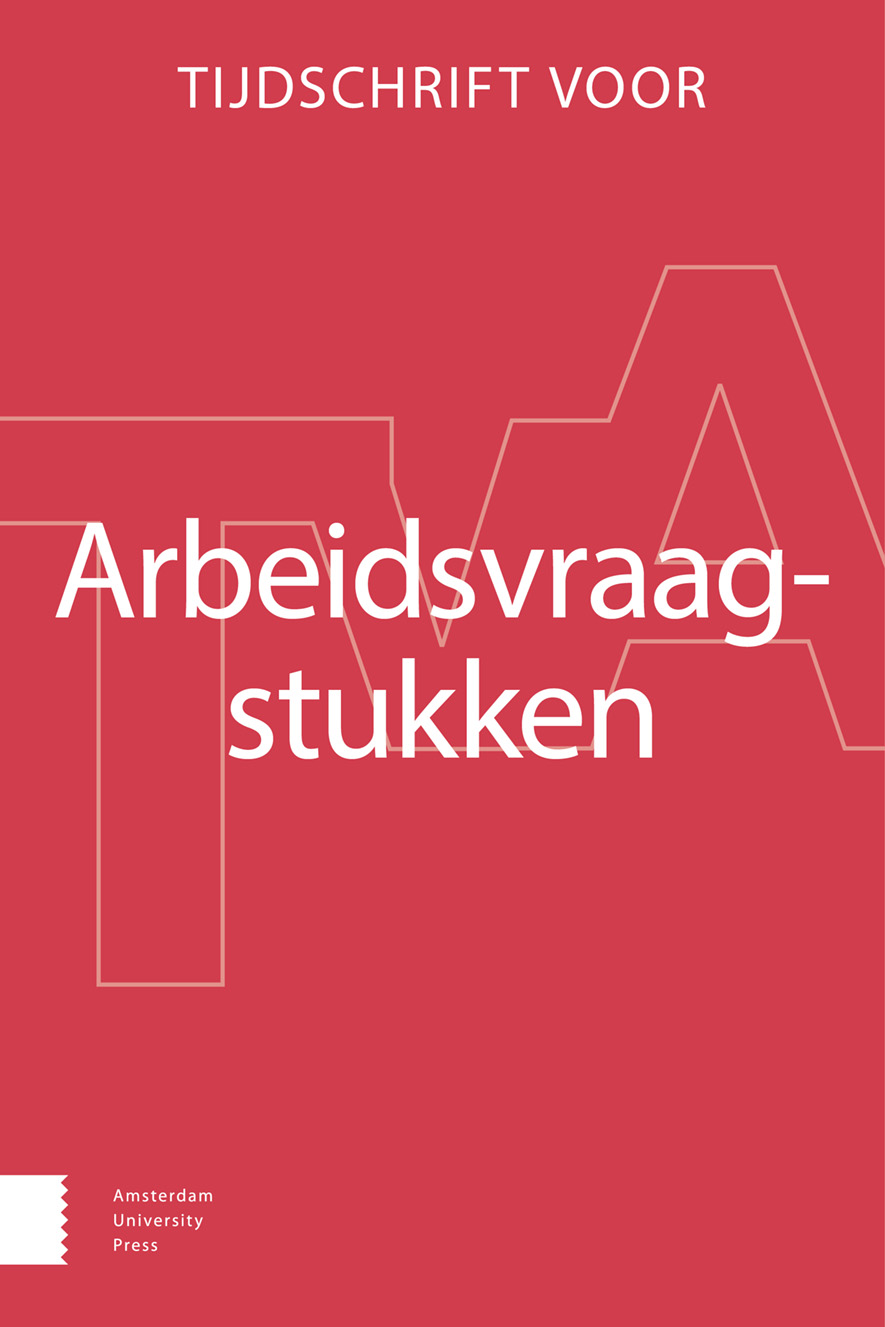-
oa Goed werk bevordert politieke participatie
- Amsterdam University Press
- Source: Tijdschrift voor Arbeidsvraagstukken, Volume 37, Issue 2, Jan 2021, p. 196 - 204
Abstract
In tijden van verkiezingen is het interessant om weer eens de discussie op te halen over de relatie tussen arbeid enerzijds, en sociale en politieke activiteit anderzijds. Het is evident dat de manier waarop wij in ons levensonderhoud voorzien – een geleide markteconomie en organisaties die overwegend hiërarchisch zijn en een sterke arbeidsdeling hebben – van invloed is op ons gedrag. Daarbij kan worden gekeken naar macrofactoren (zoals klassenstructuur of sociale stratificatie), naar het functioneren van instituties (arbeidsrecht, arbeidsmarkt, en werkgevers- en werknemersorganisaties) en naar de kwaliteit van de arbeid (inhoud, voorwaarden, omstandigheden en verhoudingen). In dit essay kijk ik vooral naar effecten van de kwaliteit van de arbeid, in het bijzonder die van de arbeidsinhoud en de arbeidsverhoudingen op politieke participatie en gevoeligheid voor populisme. Ondanks verschillen in nuances blijken er vrij duidelijke effecten te zijn.


